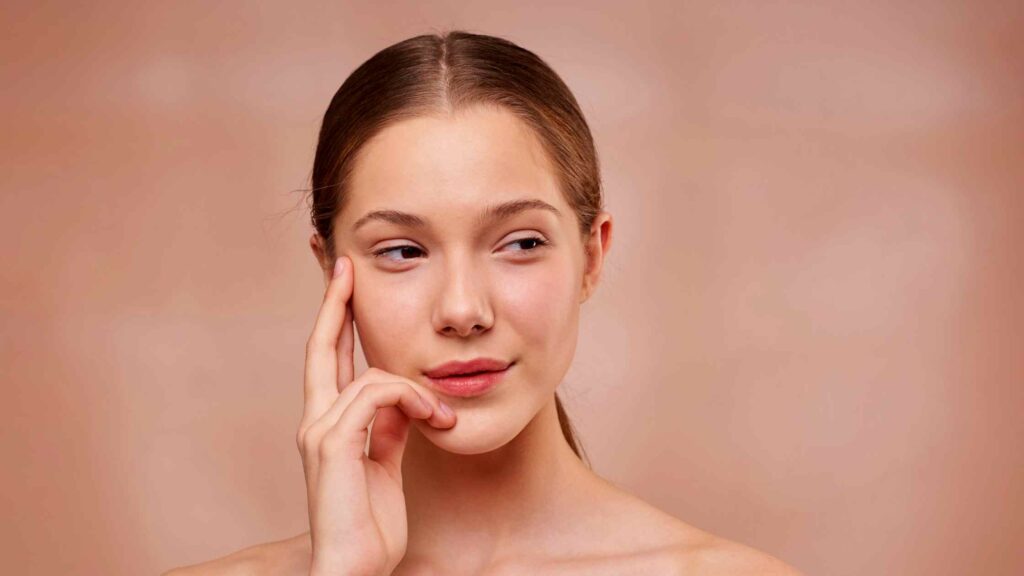There are many ways to care for your skin, but none is as effective as the proper nutrition. Aside from nutrition, skincare also involves the appropriate use of emollients and sunscreen. There are several factors to consider, such as Active ingredients, Preservatives, and Hyaluronic acid. Keep reading to find out how to choose a skincare product that’s right for you! After all, it’s important to take good care of your skin!
Active Ingredients in Skin Care Products
One of the most important things to keep in mind when using active ingredients in skincare products is how well they are delivered to the skin. This is especially true when it comes to liposomal and nanoparticle forms. A properly designed delivery system will help active ingredients reach the skin’s deeper layers, maximizing their effectiveness. Unfortunately, many active ingredients are degradable and will not achieve their full potential unless they are delivered to the proper sites.
An active ingredient in skin care product is a substance that has been approved by the FDA to alter the skin’s structure and function. These substances may include a mineral oil like titanium dioxide for sun protection or benzoyl peroxide for treating acne. A label for these substances should state the percentage of each ingredient in the product, as well as how to apply the product. Another type of ingredient is known as a performance ingredient, which is not regulated by the FDA and does not go through the same rigorous drug approval process.
Preservatives for Skincare Products
While we don’t necessarily need to use preservatives in our skincare products, there are many that should be avoided. The most obvious examples are vitamin E and propylene glycol. Although these are natural ingredients, they still contain preservative properties. Added to this, vitamin E is a potent antioxidant and contains high amounts of vitamin A. In addition to being an antioxidant, vitamin E is also a good skin emollient.
Benzyl Alcohol, a common ingredient in conventional skin care products, is also an organic compound. These substances are commonly used in moisturizers and other cosmetic formulas. But they can also release formaldehyde, a known human carcinogen. The longer these preservatives are kept in a product, the more it releases formaldehyde. Not only can these chemicals harm your skin, but they also cause irritation and even allergic reactions.
The Preservatives for Skincare Products Market research report contains company profiles, SWOT analysis, and growth prospects of key companies operating in this industry. It also provides background information on the primary players in the industry, their product sales, and their development plans. The report also examines competitive progress in the industry and the drivers and challenges. It also offers valuable market insights to help companies decide which products to incorporate in their products. And since consumers are increasingly aware of their skin’s health, new products and developments are becoming more popular.
High Concentration of Vitamin C
If you’re looking for a new face cream, you may want to start with one that contains a high concentration of Vitamin C. This powerful antioxidant has a host of benefits, including improved skin texture and reduced fine lines and wrinkles. Besides, it may also protect against the harmful effects of ultraviolet rays. When combined with a broad-spectrum sunscreen, Vitamin C can also reduce redness and protect the skin from damage.
There are two kinds of vitamin C, natural and synthetic. Natural vitamin C is sourced from fruits and vegetables, and food manufacturers add it to cereals. Synthetic vitamin C is a form of vitamin C manufactured in a laboratory and has no phytonutrients. However, many companies continue to use synthetic vitamin C in their products. There are also a number of advantages and disadvantages to using natural vitamin C in your skin care products.
Skin-care products containing Vitamin C are excellent for people with damaged skin, as they can improve elasticity and reduce fine lines. However, when used topically, it is not a replacement for a high-dose of dietary Vitamin C. In addition, Vitamin C boosts the growth of new skin cells and increases the elasticity of the skin. This makes the skin look brighter and more radiant. Therefore, it is important to consider both dietary and topical sources of this vitamin for optimal results.
Potent Ingredients in Skincare Products
A glycosaminoglycan that occurs naturally in the body, hyaluronic acid is a potent ingredient in skincare products. It has numerous uses, including as a humectant (drawing moisture from the air) and an anti-aging ingredient. Hyaluronic acid helps to retain moisture in the skin and can even protect organs from environmental elements. However, its popularity doesn’t stop there. Hyaluronic acid is also beneficial for those concerned with skincare products.
This ingredient can be irritating and drying for some people, so it is best to use it sparingly. Fortunately, hyaluronic acid for skincare can be found in the first few ingredients. Its high molecular weight makes it harder to penetrate the skin, so products containing it should be used with caution. However, the benefits of hyaluronic acid are well worth the risk. The substance can significantly improve the texture of the skin.
Hyaluronic acid helps with the problem of oily, greasy, and glossy skin, particularly when applied on the face. It is especially helpful for those living in humid climates. Sebum overproduction is typically caused by a lack of moisture in the skin. Without Hyaluronic Acid, oil glands would have to work overtime to compensate for the lack of moisture, producing more oil than necessary for hydration.
Retinol for Skincare
Retinol for skincare is a powerful ingredient that’s beneficial for nearly everyone. However, it’s important to use it with caution as it can have a serious side effect called retinoid dermatitis. Symptoms of this condition include burning, peeling, and redness. To reduce the risk of allergic reactions, you should always avoid using retinol on your face if you have sensitive skin.
Retinol helps regulate oily skin, prevent acne breakouts, and fade dark spots and hyperpigmentation. It also encourages the regeneration of skin cells, making your skin appear clearer and younger. It is a water-soluble ingredient that can be absorbed into the skin. Although it can cause redness and flakiness, retinol will gradually even out your skin tone. In addition, it can cause your skin to feel dry or flaky when you first use it.
While retinol is safe for all skin types, people with sensitive skin should avoid retinol for skincare. To avoid irritating your skin, opt for a serum that contains retinol and a plant-based antioxidant called bakuchiol. Bakuchiol facial masks give your skin a glow-like appearance and increase cell turnover. They also help smooth out uneven skin tone and fine lines.
Botanical Facial Oils
There are a number of reasons to use botanical facial oils. Hemp seed oil, which has a unique balance of essential fatty acids, is an excellent choice for dry, sensitive, and acne-prone skin. The hemp oil can be mixed with your favorite moisturizer or cream for additional benefits. Prickly pear oil is particularly good for skin that has dark spots or uneven tone. It can also brighten dull skin.
These natural plant oils contain essential fatty acids, which strengthen the skin barrier and help prevent moisture from evaporating. They also contain vitamins C and E, which are essential moisturizing nutrients and antioxidants. They also protect the skin against environmental stresses. Therefore, you’ll see great results from using these oils in your skin care routine. But what about the risk? While they do have some side effects, they’re well worth the risk.
Because facial oils are highly concentrated, they provide a high concentration of essential vitamins and fatty acids. Unlike creams and lotions, facial oils won’t clog pores or cause breakouts. Many oils also contain antioxidants and plant extracts that can help your skin fight off free radicals and pollution. That makes them an ideal choice for moisturizing your face. And since they’re formulated for everyday use, they can be used under makeup.
Face Serums
A serum is a liquid formula designed to penetrate the skin quickly and provide a concentrated dose of ingredients. They are effective at addressing several common skin concerns, including wrinkles, blemishes, and dullness. According to dermatologist Abigail Waldman, a serum can address all of these problems while providing extra anti-aging benefits. It contains ingredients such as retinol, which reduces inflammation, and niacinamide, which fights wrinkles and other signs of aging.
A face serum has a light consistency, making it easy to absorb into the skin. Its thin viscosity is a benefit to oily and combination skin types as it allows for optimal skin absorption and maximises the benefits of moisturising. Skin care is important not only for your physical health, but for your mental wellbeing, too. Try a face serum to enhance your appearance and feel great about yourself.
Serums are highly concentrated liquids that can contain as much as 70 percent active ingredients. Because they are result-oriented, they’re designed to deliver mega doses of moisture to the skin. They can replace facial oils and provide a boost to skin’s moisture levels. However, they aren’t suitable for all skin types. For example, if you have dry skin, you should avoid facial oils and choose a serum that contains vitamin C and hyaluronic acid.
Cleansing Brushes
There are many types of cleansing brushes on the market. Some are made of silicone, while others are made from nylon. Silicone brushes are usually less harsh on the skin and are easier to clean. Some brushes even have sonic vibrations to enhance their benefits. Some cleansing brushes come with multiple intensity settings. You can choose one with the right amount of vibrance depending on your skin type and desired results. Cleansing brushes are an essential part of your skin care regimen.
Last Words:
You can use a cleansing brush to remove excess sebum from your skin, which can contribute to acne breakouts. However, you need to select the right one for your skin type to avoid irritation. Not all cleansing brushes are created equal, so make sure you choose the right one for your skin type and acne problem. Some of them are rechargeable, while others are battery operated. Some are also cruelty-free.






More Stories
The Advantages and Disadvantages of Diamond Braces
The NYC Doe Health Screening | Completely Guide 2022
Liberty Health Sciences: Investor & Operator in the Medical Cannabis Industry